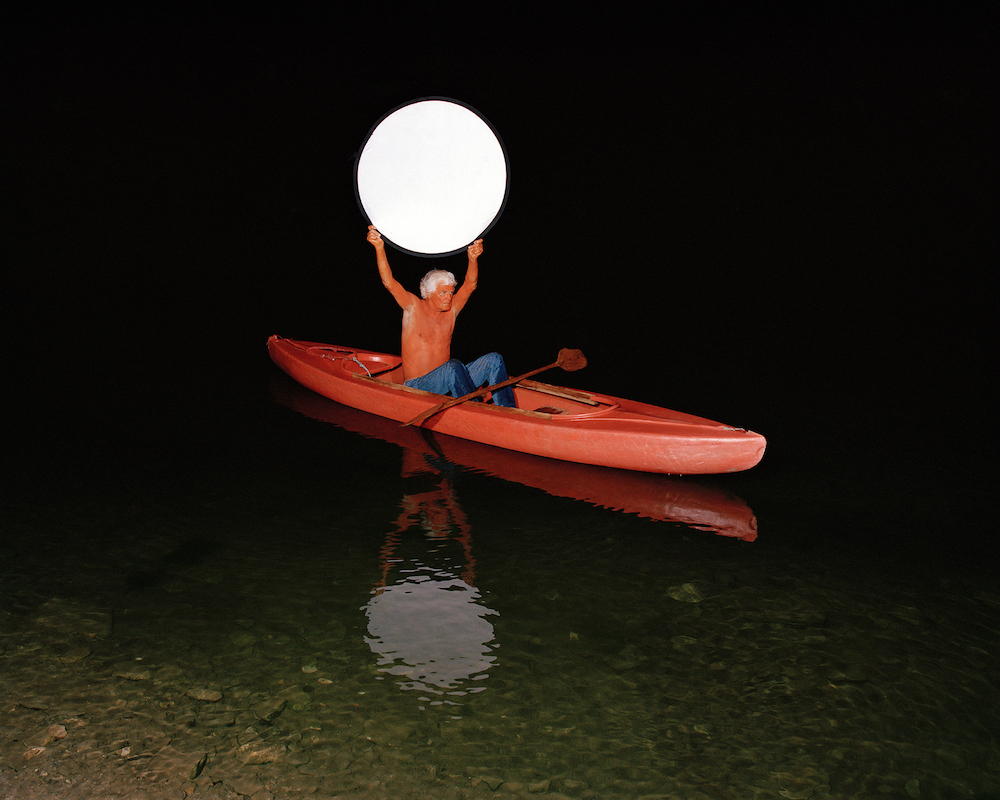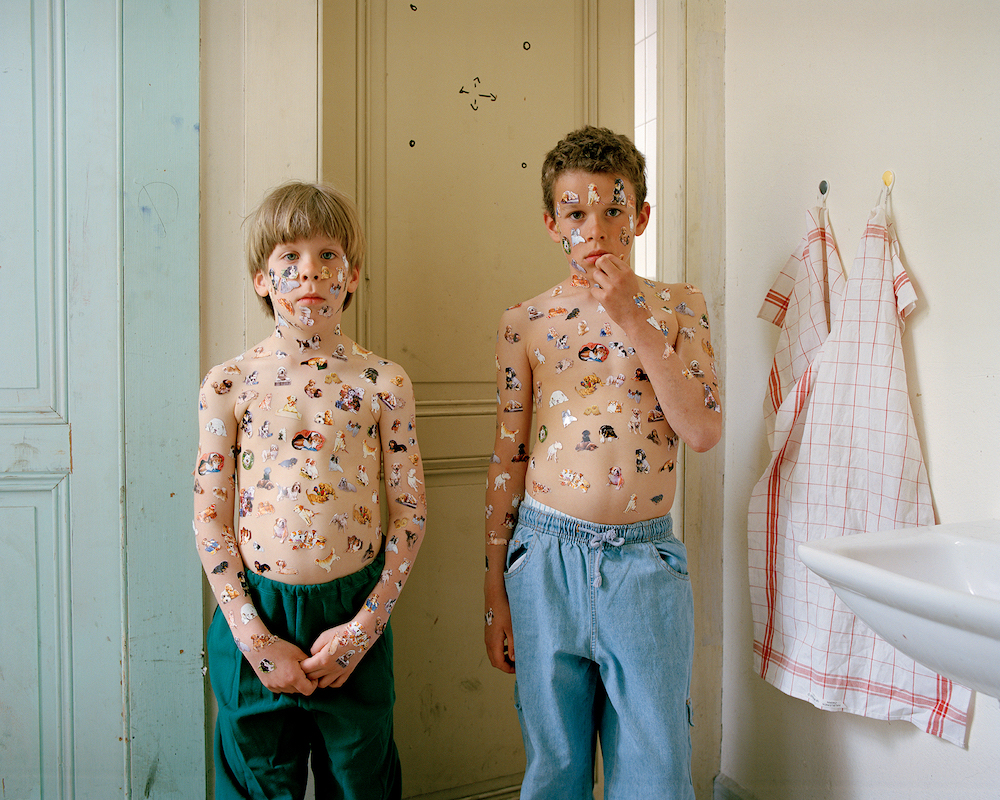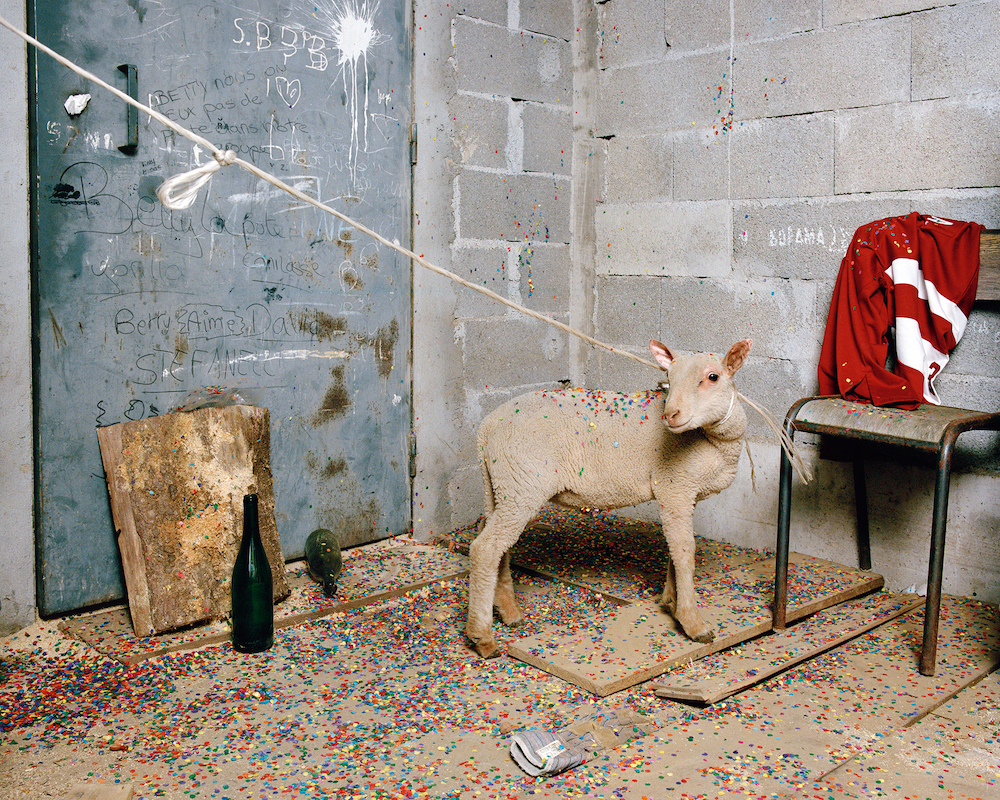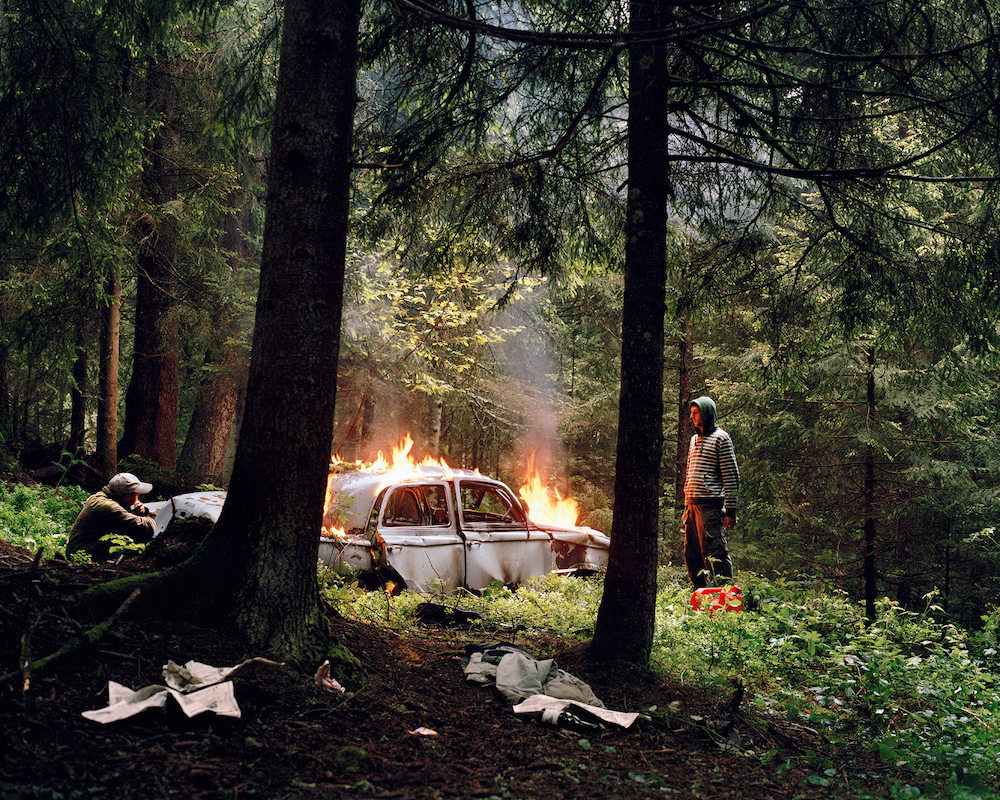© Thomas Rousset.
Set in the village of Prabert in France, Rousset’s images play on the eccentricities of the village and its people, transforming them lovingly into caricatures and tableaus
During his childhood, Thomas Rousset spent a great deal of time among the detritus of a traditional rural life. Alongside the usual array of livestock, his uncle’s farm – nestled in the small agricultural village of Prabert, France – was strewn with ramshackle buildings, dusty machinery and abandoned cars. There was an eccentricity about this farm and about the village which, later in his life, would draw Rousset back many times.
“Twelve years ago, when I started my schooling in photography, I began with documentary, with very strict documentary,” the photographer recalls of his earliest attempts to capture the reality of Prabert. “But, step by step, I began to shoot more fiction, more absurdity.” Through the gradual introduction of this absurdity, Rousset set about playing on the eccentricities of the village and its people, transforming them lovingly into caricatures and tableaus.
Rousset did this across more than a decade, resulting in a vast body of work which has now been assembled into the photographer’s first solo publication: Prabérians, published by Loose Joints. The book presents intimate portraits and collaborations with the people of Prabert, gathered in every corner of his family village. The images engage with deep rural traditions, simultaneously dignified and unconventional, mixing exaggerated scenarios with striking landscapes and naturalistic portraits.
“When you see my pictures, you don’t really know if it’s now or if it’s 20 years ago,” Rousset says, referring to the fantastical, hallucinatory nature of his images. The inspiration for this stylised approach comes, he says, from film – from the magic-realism of Emir Kusturica’s Black Cat, White Cat and the gothic works of Tim Burton. The latter’s trademark combination of the child-like and the unnerving can certainly be recognised throughout Rousset’s images: a confetti-covered lamb stares calmly into the photographer’s lens, a rope knotted around its neck. Two men sit at a table strewn with apples, contemplating a chicken that hangs limply from the older of the two’s hand. In another image, two men gaze intently at the wrecked remains of a car, as it burns in the midst of a forest.
Presented in a carefully bound, vibrantly red volume, each of these images speaks to the daily dance between work and play, solemnity and joy. Without caption or comment, the faces and detritus of Rousset’s childhood are brought to life across 220 anachronistic and curious pages, hinting – with a combination of affection and critique – at the creative potential locked within the village of Prabert and its inhabitants.
The post Fiction and absurdity: Thomas Rousset’s exaggerated explorations of rural life appeared first on 1854 Photography.






